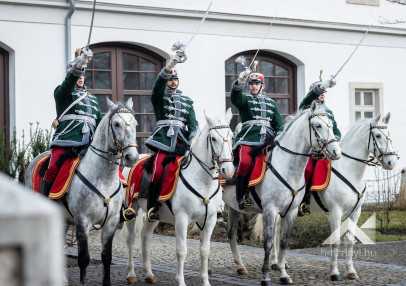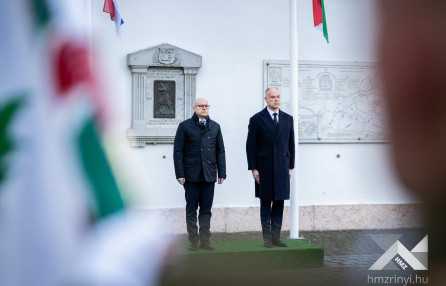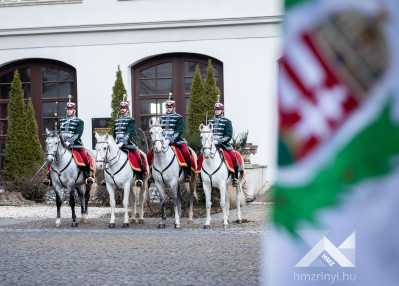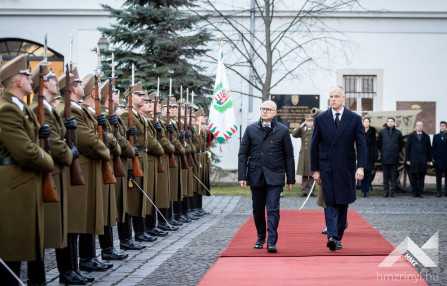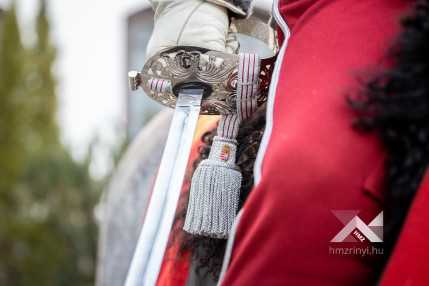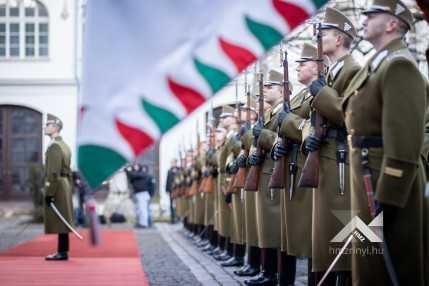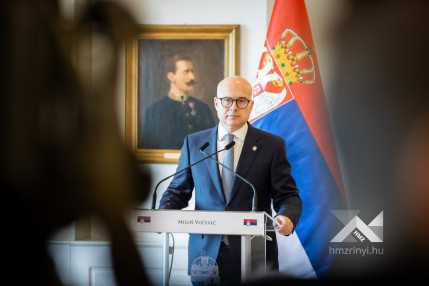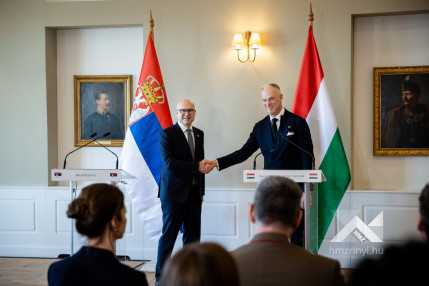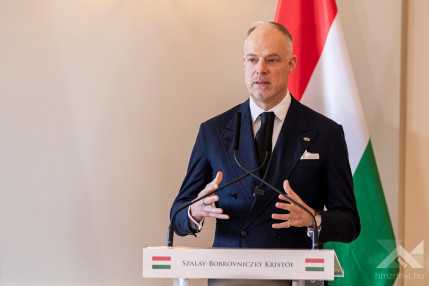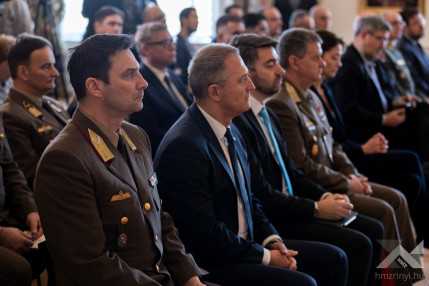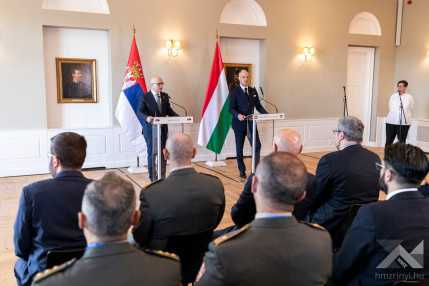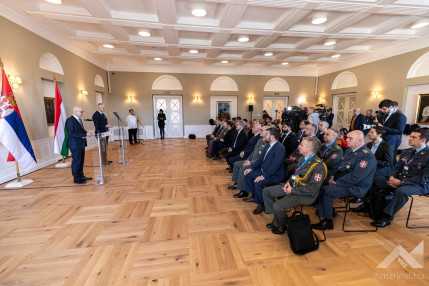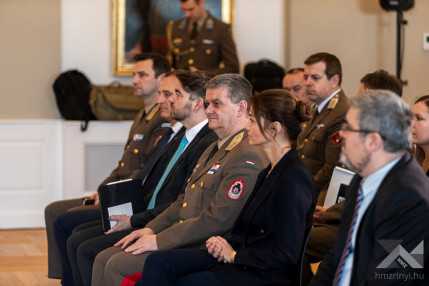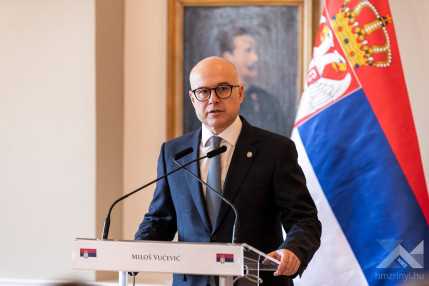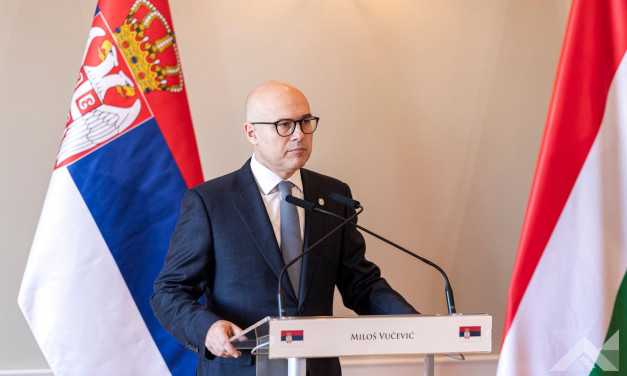Serbia is Our Distinguished Strategic Partner
Text: Márton Navarrai Mészáros | 14:03 January 29, 2024“The Hungarian government and the Ministry of Defence aspire to find a partnership with Serbia for the Hungarian defence industry advanced and renewed within the framework of armed forces development” – said Defence Minister Kristóf Szalay-Bobrovniczky at the press conference held together with Miloš Vučević, Serbian Defence Minister and Deputy Prime Minister in the Ministry of Defence on Friday, 26 January.
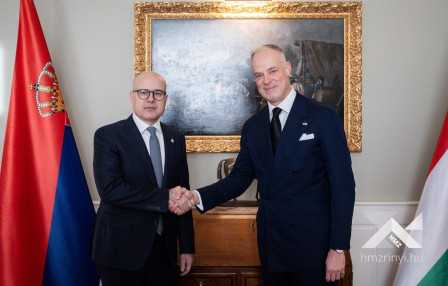
“Serbia is our neighbour and distinguished strategic partner; we are bound by a strong friendship. Also, we share mutual interests and values” – said Kristóf Szalay-Bobrovniczky recalling that the cooperation between the two nations covers several fields of defence and security.
The defence minister underlined that the relationship between Hungary and Serbia extended to the defence industry and innovation, besides the fields of mutual exercises and education. The Hungarian government and the Ministry of Defence aspire to find a partnership with Serbia for the Hungarian defence industry advanced and renewed within the framework of armed forces development.
Kristóf Szalay-Bobrovniczky recalled that the two countries agreed last year that besides the military-to-military cooperations, they would create a workgroup dealing with the defence industry and related procurements. “We are here for this reason today; this workgroup has just been created in Budapest and it has just started working”– he said.
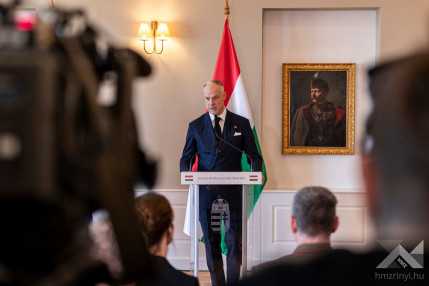
“Within the framework of their bilateral cooperation, Hungary sold superfluous Soviet equipment that is no longer used to Serbia, which is an important step in the cooperation. This became possible because Hungary is constantly developing its armed forces and new equipment is constantly arriving in large quantities from different procurements” – underlined the minister, who also mentioned that with the arrival and installation of the new equipment, it became possible to sell – up to a limit defined by law – war materials, military equipment and materials no longer used for national defence. The old equipment that can be fixed or modernized will not be sold, the Hungarian Defence Forces will find a place and function for these items at the territorial defence forces.
Kristóf Szalay-Bobrovniczky also mentioned that together with his Serbian counterpart, they also discussed the security situation of the regions of Central Eastern Europe and the Western Balkan. “It is not an exaggeration to say that the stability and the security of the Western Balkan is directly related to and affecting the stability and security of Europe, therefore, we are both determined to guarantee the security of the region” – he said.
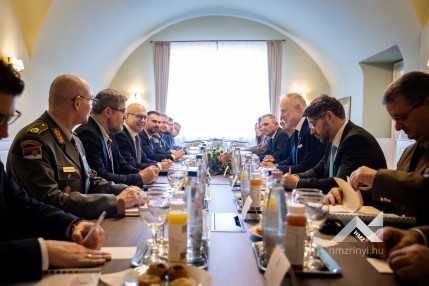
The defence minister said that Hungary will be able to stand up for the security of the Western Balkan as a leader on two platforms this year. As this year’s leader of the Central European Defence Cooperation (CEDC) established in 2010, Hungary will have the opportunity to stand up for the interests of the Western Balkan before an international audience. And in the second half of the year, we will be able to work for the strengthening of European defence as the rotating president of the Council of the European Union. The Russo-Ukrainian War called attention again to the importance of extending the European Union, and Hungary is fully supporting Serbia, which started the accession negotiations as a candidate country ten years ago.
Defence Minister Miloš Vučević said that Hungary can always count on Serbia as a strategic partner, especially that the bilateral, high-level relationship already mentioned by the Hungarian defence minister can almost be considered a friendly one. The Serbian Defence Minister declared that Serbia and Hungary share mutual values and their vision of Europe is also the same.
“We believe in a Europe that has traditions and values but a mutual future as well” – he added, then he gave thanks to the Hungarian government for always supporting Serbia in its accession to the European Union.
Both the Hungarian and the Serbian ministers highlighted that Major General Dr László Sticz would soon take over the leadership of the European Union’s Operation ALTHEA in Bosnia and Herzegovina as the first Hungarian commander of the mission.
